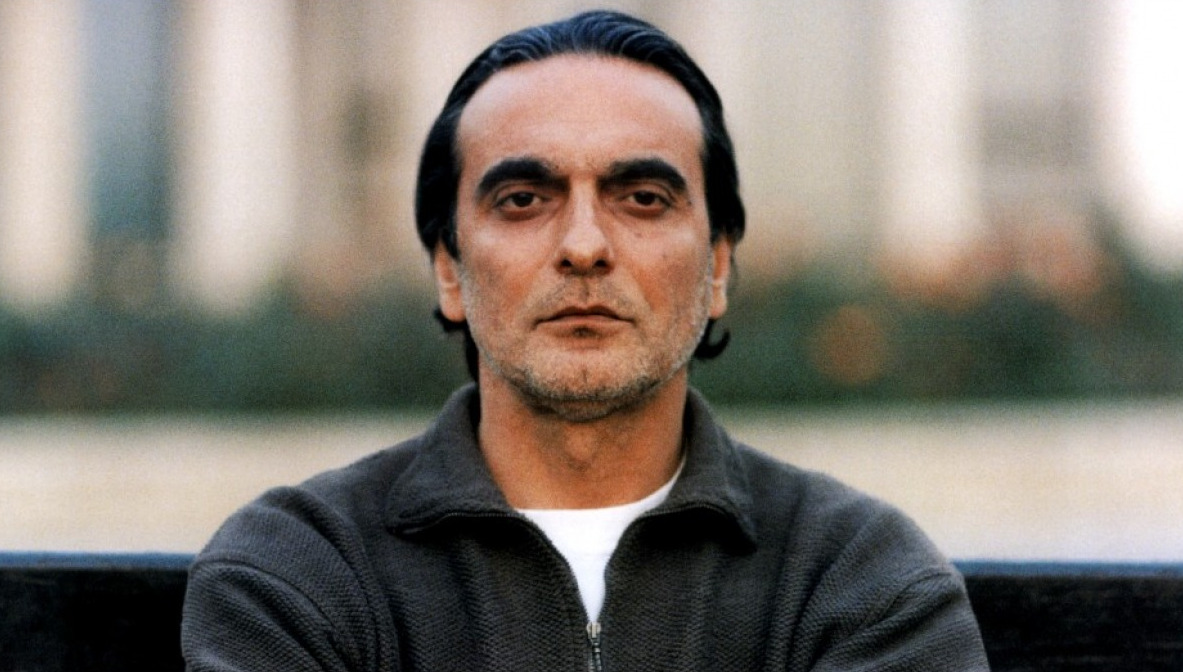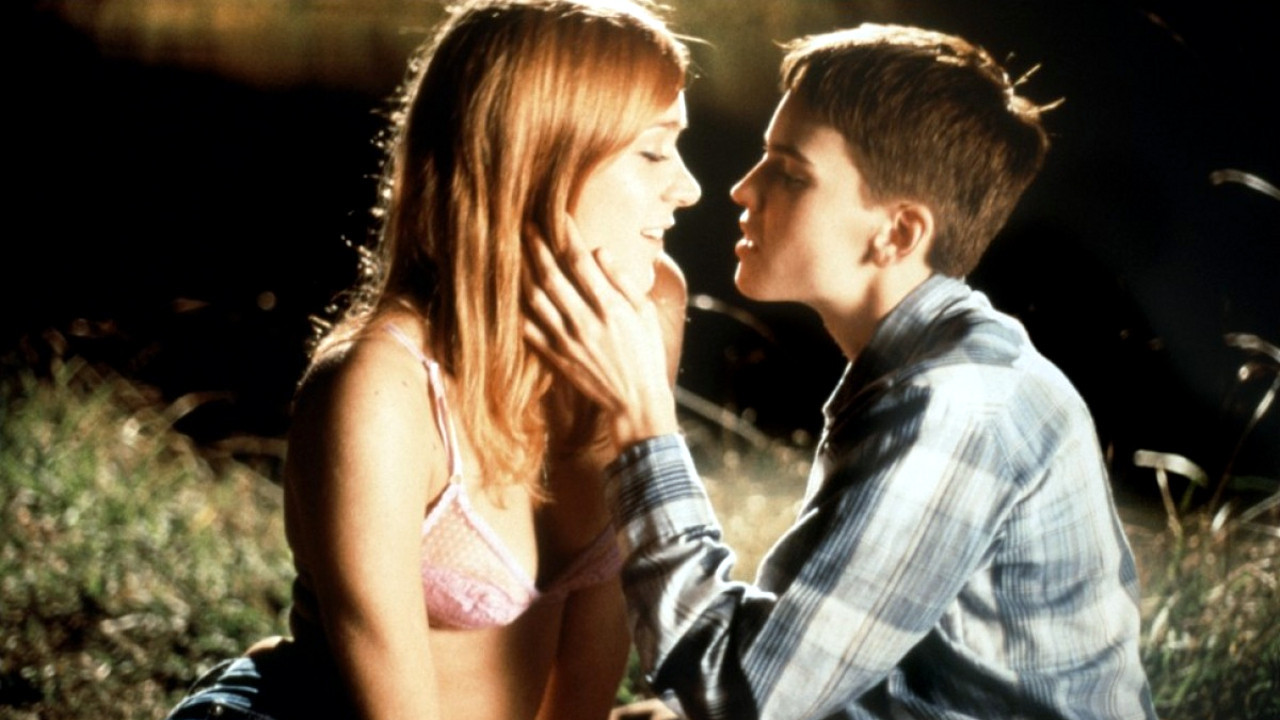10. The Elephant Man (David Lynch, 1980)

The Elephant Man is based on the true story of Joseph Merrick (or John Merrick, as he's known in the film). Merrick was a severely disfigured man, and was exploited as a human curiosity in a Victorian freak show. The film details Merrick's interactions with the townspeople of 19th century London, and in particular, the efforts of Frederick Treves (Anthony Hopkins), who rescues Merrick from a life of harsh treatment and sees him as more than just a marvel of anatomical deformity. So why could I only ever watch this once? Well, first of all, I'm bending the rules here. I have seen this film twice. However, the first time was at the age of five or six (I got it on VHS as a Christmas gift; my parents knew me well), so I obviously could not grapple with the themes back then. I watched it again earlier this year, and though I found it to be a deep, complex work, an atmosphere of sadness hangs over the entire film. It's just not pleasant seeing Merrick being ridiculed. I dare you to not be moved when Merrick, cornered by an angry mob, proclaims "I am not an animal; I am a human being!" There are very few happy moments in this film, and when they do come, I'll admit they come off as moments of forced crowd-pleasing. On a side note, this is the most straightforward Lynch film I've seen to date.
9. Taste of Cherry (Abbas Kiarostami, 1997)

The plot is simple: a middle-aged man drives around Tehran looking for someone to help him commit suicide. The film moves at a leisurely pace. Kiarostami makes heavy use of long takes, and we see many overhead shots of Mr. Badii's (Homayoun Ershadi) car zigzagging through the hills of the city. A large portion of the film comprises Mr. Badii conversing with a prospective suicide assistant, who is seated in the passenger seat of his car. We rarely see the two characters in the same frame, as Kiarostami shot these scenes while sitting in the car's passenger seat. It's one of the most quiet films I've ever seen, and it's excellent if you need something to meditate over. The film has its critics, including Roger Ebert, who gave the film one out of four stars and labelled it as "excruciatingly boring." I realise this is not for everybody, and I imagine there would have been quite a few walkouts at screenings of the film. I loved the film, although I strongly objected to the ending. This only requires one viewing not because it is boring, but because of its stylistic devices. It almost feels like it was shot in real time, and if it were possible to revisit moments from our own lives, they wouldn't have the same vividness that made them so special to begin with.
8. The Girl Next Door (Gregory Wilson, 2007)

In case the above image doesn't make it clear, this is NOT The Girl Next Door starring Elisha Cuthbert and Emile Hirsch. Oh no...this is something a million times as macabre. It's a shame that not many people have heard of this film. It is deeply disturbing and for that reason, one viewing is all I needed. As disturbing as it is, it's also very compelling and it has all the ingredients of a great horror film. The gorgeously demure Blythe Auffarth plays Meg, a girl who, along with her sister, is sent to live with her sadistic Aunt Ruth (chillingly played by Blanche Baker, of Sixteen Candles fame) after the death of her parents. Meg soon discovers that Ruth and her three sons are sick and twisted, and once Meg is bound and gagged in Aunt Ruth's cellar, the film becomes very difficult to watch. She becomes a plaything for this family of psychopaths, who beat, cut and burn her. She is raped and given a clitorectomy. It's just horrible, and if the film set out to be ugly and morose, then it gets 11 out of 10 on that front. This is one of those films that unquestionably deserves its R18+ rating. I've never seen a woman undergo so much torture in a film since Jennifer in Meir Zarchi's 'video nasty', I Spit on Your Grave (1978). At least in that film, the lead eventually got her revenge.
7. 127 Hours (Danny Boyle, 2010)

For those unfamiliar with the story 127 Hours is based on, let me take a moment to fill you in. In 2003, canyoneer Aron Ralston was hiking through Blue John Canyon in Utah. While descending a slot canyon, a boulder dislodged and crushed his right hand, pinning it against the canyon wall. Ralston remained trapped for five days and seven hours. He was all alone. No one was around to hear his cries for help. It took a feat of instinctual self-sufficiency and sheer bravery to set himself free. This is one of those films where you really have to appreciate the breezy preamble because once tragedy strikes, it's pretty dour viewing. If you're claustrophobic, you may want to skip this film altogether. If may be too much to endure. It's no surprise to learn that people fainted during the film. Other than the unpleasant nature of Ralston's (James Franco) predicament, a reason this only requires one viewing is because it's a biopic. You see it once and you get what happened. If you want to know more, you can read Ralston's autobiography (poignantly titled Between a Rock and a Hard Place) or do a YouTube search for interviews he has done.
6. Boys Don't Cry (Kimberly Peirce, 1999)

Hilary Swank's performance as Brandon Teena in Boys Don't Cry is one of the best performances I have seen in any film, period. You can quote me on that. Here's another film that is based on a real event or person. Brandon Teena was a female-to-male [non-operative] transgender man who was tragically beaten, raped and murdered by his male acquaintances after they discovered he was born biologically female. You may think I just spoiled the movie for you, but I don't believe in spoilers when it comes to biopics. I think we should pay respect to the people these films are based on by not interpreting their life events as secrets. Besides, Boys Don't Cry is less about what happens to Brandon, and more about how he internalises these situations. The relationship between Brandon and Lana (Chloë Sevigny) is beautiful, and provides the film with its happiest moments. The abuse that Brandon receives in this film looks frighteningly realistic—a lot more believable than the torture in The Girl Next Door. This is further testament to Swank's bravery in accepting the role, which she deservedly won the Best Actress Oscar for.
5. The Passion of the Christ (Mel Gibson, 2004)

I remember watching The Passion of the Christ as an 11 year-old boy with my father at Wetherill Park cinemas. It was on a rainy Sunday afternoon, and it will go down as one of the most emotionally intense viewing experiences I have ever endured. I was baptised as a Roman Catholic. All my years of schooling were completed at Catholic schools. Today, I call myself an atheist, but as an 11 year-old, I was still coming to terms with my faith, or lack thereof. I've never truly believed in a god, but as a child, I entertained the idea that there could be one. Of course, the teachers at school drilled it into us that there was undoubtedly a god; that everything about Christianity is rainbows and sunshine. They were paid to do that. I guess that's why my reaction to this film was so strong. Here's a man who I'd learnt so much about at school. Jesus was a good man. Even if I didn't take everything I was taught as the gospel truth, I still had some attachment to the ethos of Jesus Christ. I liked what he stood for. That's why I cried during this film. I cried because it hurt to see someone go through so much pain, when he didn't actually do anything to deserve it. It was tough seeing him reduced to a bloody pulp, and this is one of the only movies that forced me to look away from the screen. Everything felt so real. Jim Caviezel is phenomenal as Jesus. He doesn't really perform in his role. He simply reacts, but he does it so well. Plenty of people detest this film, be it for the excessive violence or perceived anti-Semitism, but I think it's a powerful film that deserves to be seen...but only once.
Despite the fact that this comes in at #4 on the list, I regard it as the most disturbing film I have ever seen. It doesn't come in at #1 because I can think of three other films that are less absorbing than this one. As disturbing as it is, the two leads (Arno Frisch and Frank Giering) managed to keep me hooked, and I never got bored. The film begins with a wealthy German couple (Susanne Lothar and Ulrich Mühe) who, along with their son (Stefan Clapczynski) and pet dog, arrive at their Austrian lake house. Slowly but surely, two young men named Peter and Paul weasel their way into the lives of the family. Peter asks Anna (Lothar) if he can borrow some eggs, but he has ulterior motives of getting inside the family's home. Paul kills the family's dog, and Peter strikes Georg (Mühe) with a golf club. From this point on, the film is an absolute nightmare to sit through. Peter and Paul hold the family hostage, and 'play' with them through a series of sadistic mind games. This is scarier than most films that identify as 'horror'. Families have their homes invaded all the time, so a very real fear is being toyed with. As much as it frightens and unnerves me, I admire the film for how uncompromising it is. Haneke has said that he intended this film to be a comment on the way violence is dealt with in the movies. There are scenes where Paul breaks the fourth wall, and Haneke wants us to become his accomplice so we feel reproached for his actions at the end of the film. This film will leave a sour taste in your mouth. You will feel horrible for watching it. It's a work of grim hopelessness, with no emotional reprieve. Haneke made a shot-for-shot remake of the film in 2007, intended for American audiences. I've seen that too, so have I technically seen Funny Games twice? I don't know. That's a matter of debate. An 18-minute interview with Haneke about the film is available here.
3. Salò, or the 120 Days of Sodom (Pier Paolo Pasolini, 1975)

Salo is one of the most misunderstood films I've ever seen. Plenty dismiss it as vulgar trash without any substance. Sure, it didn't have to be made, but I think we can understand life under fascist rule more vivdly because of it. In the film, four wealthy fascist libertines round up 18 teenage boys and girls and subject them to four months of sadistic violence and sexual abuse. It doesn't sound pretty, and that's because it's not. Inspired by Dante's Inferno, the film is divided into four sections: the Anteinferno, the Circle of Manias, the Circle of Shit, and the Circle of Blood. Despite the disturbing subject matter, some of the dialogue is actually sort of funny, and there are parts of the film that are easier to endure than others. If you're going to watch this, it's best you do it on an empty stomach. It's not exactly pleasant to see people eat faeces, although just remember that what they're really eating is chocolate mixed with orange marmalade. It's the dehumanisation of the teenage subjects that makes this so disturbing. They are walked on leashes like dogs, and are expected to attend to any sexual needs the libertines may have. It's a film that will imprint itself on your mind, so that's why you only need to see it once.
2. Sick: The Life & Death of Bob Flanagan, Supermasochist (Kirby Dick, 1997)

Ugh. I don't like talking about this film or even thinking about it, but here goes. This documentary focuses on the life of Bob Flanagan, an American performance artist who had cystic fibrosis. Bob wasn't just any performance artist. He was a sadomasochist always willing to push the boundaries of what was socially acceptable. We learn of his philosophy on life, which is closely tied to his partner, Sheree Rose. Bob consented to be Sheree's property by drawing up the following contract:
Of my own free will, I, Bob Flanagan, grant you, Sheree Rose, full
ownership and use of my mind and body. I will obey you at all times and
will wholeheartedly seek your pleasure and well being above all other
considerations. I renounce all rights to my own pleasure, comfort or
gratification, except so far as you desire or permit them. I renounce all
rights to privacy or concealment from you. I will answer truthfully and
completely to the best of my knowledge any and all questions you might
ask. I understand and agree that any failure by me to comply fully with
your desires shall be regarded as sufficient cause for severe punishment. I
otherwise unconditionally accept as your prerogative anything you may
choose to do with me whether as punishment for your amusement or for
whatever purpose no matter how painful or humiliating to myself.
He lived for pain. For Bob, carving his skin with a knife or nailing his penis to a wooden plank was nothing compared to the pain of cystic fibrosis. Flanagan agreed to be in the film on the condition that his death be included in the final product. Indeed, we see Bob Flanagan withering away on his deathbed. We see him take his last breaths, and we see photos of his body that were taken just after he died. I didn't cry when I saw those sequences. I was sad, but I was too shocked to cry. I was reminded of my own mortality. "That could be me one day," I thought. It was powerful and I'll never forget it. The film ends with one of Bob's spoken-word poems, called Why. If you choose not to watch the film, I urge you to at least listen to this.
1. Dancer in the Dark (Lars von Trier, 2000)

This is an affecting concoction of music and drama, and I felt really uncomfortable throughout the whole thing. It was a real mission to watch. The fact that it was shot with a handheld camera gives it the feel of a documentary. Selma (Björk) does not seem fictitious in the slightest. The pacing is painfully slow, and I couldn't wait for it to be over. Conversely, I knew the ending would be hard to watch, and so I was prepared for the worst. In the end, I gave it 5 out of 5. It's one of those films that reveals its greatness not through its content, but through the way it makes you feel. When the end credits rolled, I knew I had witnessed something that would stay with me. So far, it has. You'll notice I haven't mentioned any plot details, and I'm not going to. In the scheme of things, the plot is just a conduit for posing questions of morality. I have never seen anything else like Dancer in the Dark, and I don't think I ever will. In fact, I don't want to.

Great list! I haven't watched some of these purely because I just haven't been able to bring myself to face them. '127 Hours' is one - I get phantom leg pains just thinking about it. For me Haneke's 'Amour' which I saw this year would make my list. It was heartbreaking and beautiful but I'm not sure I could ever see it again.
ReplyDeleteThanks. :) 'Funny Games' is the only Haneke film I've seen (hangs head in shame), but I plan to watch more, starting with BENNY'S VIDEO.
ReplyDeleteThis comment has been removed by a blog administrator.
ReplyDelete